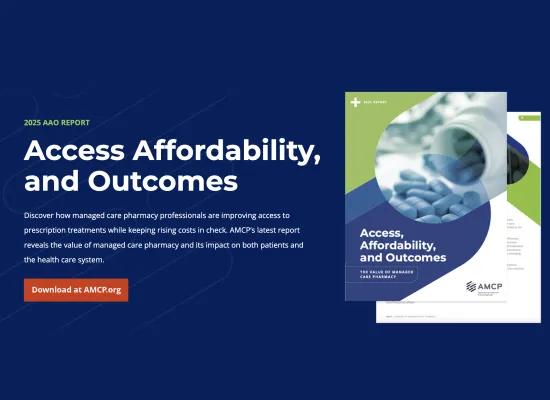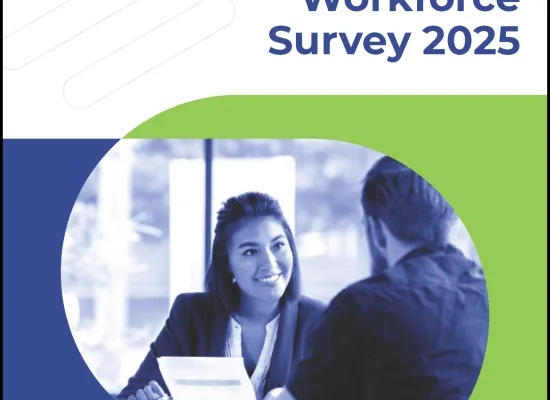
COVID-19 Shifts Consumer Behavior, Attitudes Toward Health Care Services
Washington (May 21, 2020) – Citing concerns about coronavirus, 72 percent of U.S. consumers have dramatically changed their use of traditional health care services, with many delaying in-person care and embracing virtual care, according to a new national survey released today by the Alliance of Community Health Plans (ACHP) and AMCP, conducted by Leede Research.
Respondents cite their doctor as the most trusted source of information (58 percent) about the virus, but only 31 percent feel “comfortable” visiting their doctor’s office, leading to significant changes in attitudes and behavior toward standard health care services:
- 41 percent have delayed health care services
- 42 percent feel uncomfortable going to a hospital for any medical treatment
- 45 percent feel uncomfortable using an urgent care or walk-in clinic
- 38 percent intend to delay future care, treatment, and procedures
The concerns about visiting health care settings, coupled with the trust in health care providers have resulted in other changes in attitudes and behavior: the adoption of and satisfaction with telehealth, which has soared to rave reviews, during the pandemic:
- 28 percent report using some type of virtual care in the past three months, nearly tripling previously documented averages
- 89 percent of those who have used telehealth (including phone and Internet) were satisfied or very satisfied with the experience
- 46 percent, overall, are comfortable trying telehealth now
“The pandemic has put consumers in a health care tailspin: They want to be tested for COVID-19, and for that, they rank their doctor’s office as the place they would feel most comfortable. However, for all other health care services and treatment, consumers want to delay visiting health care facilities altogether,” said Ceci Connolly, president and CEO of ACHP. “As a result, we see a health care industry, already stretched due to coronavirus itself, struggling to provide care and coverage. The successful consumer adoption of telehealth services provides one bright light for the industry today.”
When it comes to testing, most respondents (64 percent) want to be tested for COVID-19, but more than a third of respondents (36 percent) are concerned about their ability to access testing and treatment. In terms of location, 69 percent of respondents reported feeling comfortable being tested at their doctor’s office — a sharp contrast to the mere 18 percent who expressed feeling comfortable getting tested at their workplace.
The pandemic has not dramatically altered the popularity of in-person pharmacy visits. While 39 percent of respondents feel comfortable being tested for COVID-19 at a pharmacy, nearly half (49 percent) report feeling “very comfortable” picking up prescriptions at their local pharmacy and speaking with their pharmacists about their medications. In fact, in the last 90 days, nearly half (47 percent) received new medication, and the overwhelming majority (90 percent) did so at a local retail pharmacy. Only nine percent used home delivery from a local pharmacy, and 24 percent used a mail-order pharmacy.
“This survey highlights the crucial role pharmacists play in today’s health care system,” says AMCP CEO Susan A. Cantrell, RPh, CAE. “Consumers’ confidence in pharmacists is impressive with significant percentages filling their prescriptions at a retail pharmacy over the past three months and stating they would feel comfortable getting tested for COVID-19 at a pharmacy. Such testing expands the role pharmacists have played during this pandemic. This consumer confidence presents an enormous opportunity for pharmacists to support a strained health care system because the same consumers are delaying visits with other health care providers due to safety concerns.”
The majority of survey respondents (74 percent) believe it is likely or very likely there will be a resurgence of coronavirus in the fall or winter, creating uncertainty about their plans for elective and diagnostic procedures:
- More than a third (38 percent) would delay scheduling elective procedures for at least six months
- More than a quarter (27 percent) would delay scheduling diagnostic procedures or tests in a hospital setting for at least six months.
Thirty-seven percent of respondents reported that they or someone in their household has a chronic condition. This group had a higher incidence (60 percent) of delaying care during the pandemic than other segments of the population (41 percent). When members of this group tried smartphone apps to manage or treat a medical condition in the last 90 days, an overwhelming 97 percent rated them as valuable or very valuable.
As unemployment rises, so does anxiety about losing health insurance. Nearly a quarter of those with insurance (21 percent) are worried about losing coverage within the next six months. Among uninsured respondents, 38 percent expressed a willingness to pay $75-300 per month for coverage.
View more information and survey results.
Survey Methodology
ACHP and AMCP partnered with Leede Research to survey 1,263 adults aged 18-74, online by invitation only from May 1-6, 2020. The margin of error for the data is +/- 3.0 percentage points.
About ACHP
The Alliance of Community Health Plans (ACHP) represents the nation’s top-performing non-profit health plans to improve affordability and outcomes in the health care system. ACHP member companies are provider-aligned health organizations that provide high-quality coverage and care to tens of millions of Americans. ACHP advocates on behalf of its members and a unique approach to health care today, one that puts the patient at the center with health plans and clinical teams collaborating to improve health outcomes and reduce costs. Learn more at the ACHP website and follow us on Twitter for the latest health insights.
About AMCP
AMCP is the professional association leading the way to help patients get the medications they need at a cost they can afford. AMCP's diverse membership of pharmacists, physicians, nurses, biopharmaceutical professionals, and other stakeholders leverage their specialized expertise in clinical evidence and economics to optimize medication benefit design and population health management and help patients access cost-effective and safe medications and other drug therapies. AMCP members improve the lives of nearly 300 million Americans served by private and public health plans, pharmacy benefit management firms, and emerging care models. Visit www.amcp.org.
Contact Info:
ACHP: Leah Hunter, @email, 202-577-5435
AMCP: Neal Learner, @email, 571-278-9381
Featured News & Resources
See Full CalendarAward Applications Open
AMCP eLearning Day: Nexus Encore
AMCP 2026 Registration Opens
Upcoming Events
AMCP offers a wide variety of educational opportunities, from events and webinars to online training.







